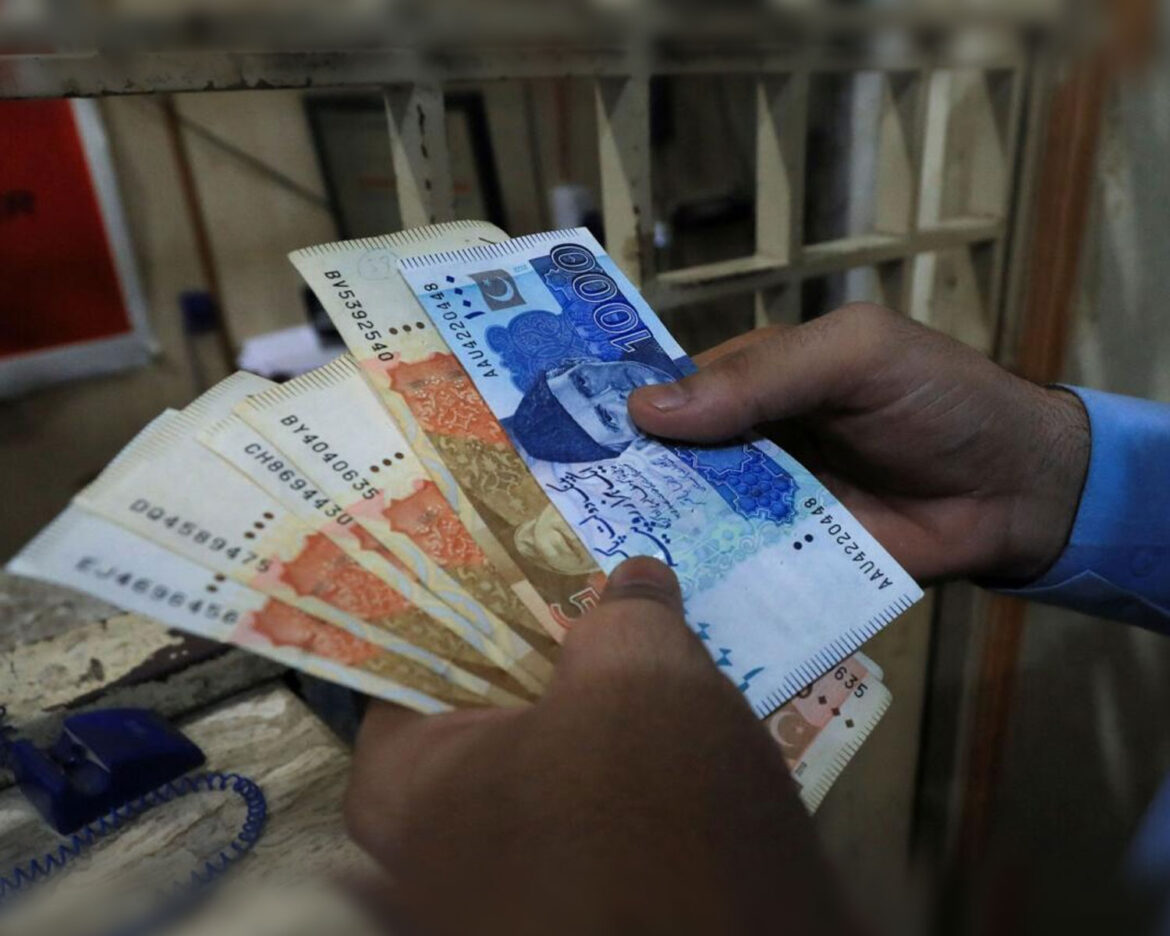Pakistan’s military has taken decisive action to defend the beleaguered Pakistani rupee. Licensed foreign exchange traders have celebrated the crackdown on the black market, while their illegal counterparts in cities like Peshawar and Karachi have shuttered their operations in anticipation of law enforcement action.
The operation against the informal currency market has yielded substantial results, with reports of tens of millions of dollars flowing back into the official interbank and open markets since raids on black market operators commenced on September 6.
The Pakistani rupee, which hit record lows on September 5, has shown signs of recovery, trading at less than 300 per US dollar earlier this week. This represents a remarkable rally of over 10% from levels before the crackdown, even surpassing the official exchange rate.
While previous attempts to curb the black market have been made during currency crises, this latest initiative was initiated after licensed dealers sought the intervention of army chief General Asim Munir. Malik Bostan, chairman of the Exchange Companies Association of Pakistan (ECAP), revealed that the licensed dealers faced a shortage of customers, as the majority were resorting to the black market for foreign exchange.
A meeting held in Islamabad with various officials, including heads of law enforcement and security agencies, saw Bostan and his colleagues emphasize the urgency of escalating the matter to General Munir. Subsequently, the army chief took notice and initiated a task force to crack down on the illegal currency market.
Representatives from the Federal Investigation Agency (FIA) and the Inter-Services Intelligence (ISI) agency attended the Islamabad meeting. However, details about other participants or who convened the meeting remain undisclosed.
Two currency dealers, one in Karachi and another in Lahore, confirmed that security officials, including individuals identifying themselves as members of the ISI, had summoned them for discussions. Spokespeople for both the military and the civilian government declined to comment on the matter.
Nonetheless, an anonymous security official praised the crackdown’s success, attributing it to strict administrative measures against hoarders, black market traders, and currency smugglers. The official stated that the government had issued stringent orders against unauthorized money changers and criminal syndicates.
For the past week, currency shops in Peshawar’s bustling Chowk Yadgar bazaar have remained closed, with reports of law enforcement officials arresting senior market members and taking them away in unmarked vehicles. Locals have referred to these plainclothes officials as “farishtay,” meaning “angels,” a term used to describe ISI agents. However, their actual identities remain unconfirmed.
A security official, speaking on condition of anonymity, confirmed the military’s involvement in the crackdown but emphasized that it was working alongside other entities.
Highlighting the scale of the issue posed by parallel markets, Sheikh Allauddin, the president of ECAP, estimated that annual transactions in the black market amounted to approximately $5 billion, compared to $7 billion in the regulated open market.
The most significant crackdowns occurred in Peshawar and Quetta, both known as trade hubs with neighboring Afghanistan. The freezing of banking channels following the Taliban’s takeover in 2021 had resulted in significant amounts of dollars being smuggled from these cities into Afghanistan.
While the crackdown on the black market is seen as necessary to stabilize the rupee, experts warn that it represents a temporary solution. High inflation and chronic external deficits remain at the heart of the currency’s problems, and restricting access to black market dollars could lead to pent-up demand.
“There is an unprecedented demand for the dollar,” warned Hanifullah Mohmand, a trader in the Peshawar market. “Common people are buying dollars, fearing that Pakistan is going to default soon.”



